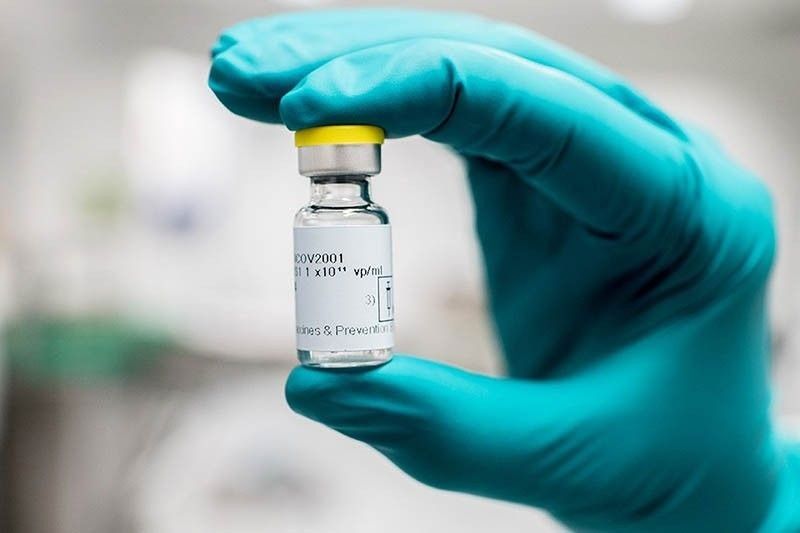Philippines gives green light to Janssen vaccine trials

MANILA, Philippines — Belgium’s Janssen Pharmaceuticals Inc. becomes the first company to conduct clinical trials for its COVID-19 vaccine in the Philippines, the Food and Drug Administration (FDA) announced yesterday.
FDA director general Eric Domingo said the agency approved on Monday Janssen’s application to hold Phase 3 clinical trials in the country.
“This has been given the go signal by the FDA and maybe they will be able to start their clinical trial after the New Year,” Domingo said.
Janssen, owned by Johnson & Johnson, is among three pharmaceutical firms with pending applications to do clinical trials in the country.
The others are Sinovac and Clover Biopharmaceuticals of China.
Sinovac made some changes in its protocol or research design and so its documents were returned to the reviewers, Domgino said.
The FDA is waiting for Clover to complete their documentary requirements.
Domingo said the next step would be for the vaccine expert panel of the Department of Science and Technology to assign an area where the trial would take place.
There will be preliminary preparations and recruitment of participants and the trial will start in the next few weeks.
Domingo said so far, only Pfizer applied for emergency use authority (EUA) to be able to supply the country with its candidate vaccine.
Pfizer’s application was submitted online on Dec. 23.
“We have downloaded and submitted their documents to the evaluators and we hope to complete the preliminary evaluation within two weeks,” he said.
After this, Pfizer’s application will be evaluated both on the regulatory side for the quality of the vaccine and clinical side for its efficacy and safety.
‘Cut the red tape’
As this developed, the FDA has been urged to do away with bureaucratic red tape in approving the use of COVID vaccines that are being used by advanced economies like the US and Europe.
“There should be no red tape in the approval or authorization process because this is a race to save lives,” Quezon City Rep. Precious Hipolito-Castelo said, noting there is “no need for the FDA to study” the vaccines that have been “extensively evaluated and authorized” by the US and Germany.
“COVID-19 vaccines should be spared from politics and bureaucratic delay, which will cost us more lives and livelihood,” Castelo added, referring to the Pfizer/BioNTech vaccine that has a 95-percent efficacy rate along with the US’ Moderna.
Singapore – the first Asian country to receive the Pfizer/BioNTech vaccine – will start inoculating its people today, giving priority to its health workers and the elderly.
“If it is good for Singaporeans, it must be good for us. What is the FDA waiting for?” Castelo asked.
She said that even as the regulator issues Pfizer/BioNTech its EUA today, it would still take months “before they could supply us.”
She said the US has authorized the use of the Moderna vaccine, while the United Kingdom is about to issue EUA for its homegrown jab developed by AstraZeneca and Oxford University.
“The more vaccines with high efficacy we have, the better for our people,” Castelo said.
The issuance of an EUA to AstraZeneca/Oxford vaccine could prompt private domestic companies to increase the initial 2.6 million doses they have contracted from the two partners, she said.
The companies committed to give half of the vaccines to their employees and donate the other half to the government.
Tax-free
Meanwhile, Albay Rep. Joey Salceda reminded Cabinet officials to ensure that the importation of the COVID-19 vaccines would be tax-free and quickly delivered to ease the impact of the pandemic.
“Each day that we are unable to return to the ‘old normal’ costs the economy P85 billion at least. The benefits of removing the tariff and tax barriers to importing COVID-19 vaccines is critical to fast-tracking mass vaccination by several days,” Salceda said.
“The cost-benefit analysis appears to me to be very clearly on the side of frictionless importation. Every day will be lifesaving,” he added.
As far as Salceda is concerned, the vaccines should be VAT (value added tax) and duty-free, as these are friction costs and administrative burdens that could delay vaccine procurement and distribution.
“On the question of whether the private sector should be able to import the COVID-19 vaccines without taxes and duties, my answer is an unambiguous yes,” Salceda, chairman of the House committee on ways and means, said.
He said the government should take a pro-active role in dealing with the global health crisis by planning and preparing for contingencies for purposes of stockpiling of syringes, needles and other mass vaccination needs.
“As you know, the world is in some sort of vaccination rush, so one can expect shortage of syringes, needles and other vaccination needs. We are looking at four to seven billion doses of COVID-19 vaccines being administered in 2021 and 2022,” he said.
- Latest
- Trending






























